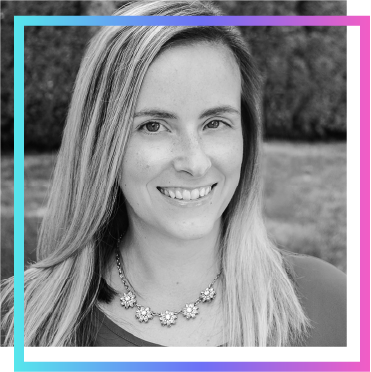We may receive commission if you decide to use counseling services through BetterHelp or other resources on our website.
Telemental / Telehealth Regulation in Maryland
TABLE OF CONTENTS
I. What are the licensure requirements in Maryland for telehealth mental healthcare?
In Maryland, only licensed health care professionals are permitted to provide telehealth services. For doctors, the Maryland state licensure requirements dictate that every provider must have an active license issued by the Maryland Board of Physicians. Counselors providing telemental care must be licensed by the State Board of Professional Counselors & Therapists.
Requirements for out-of-state treatment
Maryland does not yet belong to the Psychology Interjurisdictional Compact, which allows providers to deliver telemental services across state lines without having to obtain multiple state licenses. SB0500 seeks to add Maryland to the Psychology Interjurisdictional Compact, but it has not been approved by the Maryland General Assembly. If the bill passes, Maryland health care providers will be allowed to provide telehealth services to patients in other states that belong to the compact.
Emergency licensure
Due to the COVID-19 pandemic, many states have adjusted their telehealth licensure requirements to ensure that patients have access to needed services even when they can’t visit their regular providers. In Maryland, the Department of Health relaxed its licensure requirements to permit providers with active licenses in other states to deliver online therapy and other telehealth services to patients in Maryland. The services delivered must be clinically appropriate and within the practitioner’s regular scope of care.
II. What are the online prescribing regulations in Maryland?
Maryland permits physicians and other health care providers to engage in online prescribing, provided they follow several rules. The provider must take steps to verify the patient’s identity before delivering telehealth services and writing prescriptions. Providers must also conduct an audiovisual examination of each patient before prescribing any medication. Asking a patient to fill out a questionnaire isn’t enough to satisfy the exam requirement. Providers may not prescribe opioids via telehealth unless the patient has been admitted to a health care facility.
III. What are other common telehealth restrictions in Maryland?
State law limits the provision of some health services via telehealth technology, and not all providers are permitted to provide telehealth services to patients. Despite these restrictions, some allowances can be made in emergency situations.
Types of telehealth services allowed
Maryland allows health care providers to deliver health care and health education via telehealth technology. Health care includes conducting audiovisual examinations, taking patient histories, asking questions about symptoms, and prescribing medications to treat acute and chronic health conditions. Health education includes providing information about medical conditions, referring patients to accurate sources of health information, and explaining what can happen if a patient doesn’t address a health problem or take medication as prescribed.
Types of providers allowed to provide telehealth services
Under Maryland law, primary care physicians, psychiatrists, and psychiatric nurse practitioners are allowed to deliver telehealth services. Licensed counselors and therapists are also entitled to provide counseling and other behavioral health services using telehealth technology. Every provider who delivers telehealth services to patients in Maryland must be licensed by the appropriate licensing body. Every provider must also have a license in good standing, with no pending disciplinary actions.
Emergency allowances
Due to the COVID-19 pandemic, behavioral health professionals who prescribe buprenorphine to their patients are now allowed to prescribe via audio-only phone call, instead of engaging in a complete audiovisual telehealth session. This applies only if the patient doesn’t have the means to make a video call. The U.S. Department of Health and Human Services has also relaxed its enforcement of certain HIPAA requirements, as long as providers deliver telehealth services in good faith.
IV. Telehealth provider resources in Maryland
The internet is an excellent source of information about licensing requirements, telehealth technology, and other topics related to the delivery of telehealth services. If you need more information about finding a provider or downloading tools to help you connect with your health care providers, visit the following resources.
Maryland Board of Physicians
The Maryland Board of Physicians publishes its licensure requirements for physicians on its website. You can also use the site to look up a physician’s license to make sure it is active and in good standing. This is especially helpful if you’re trying to determine if one of your health care providers is eligible to offer telehealth services in the state of Maryland.
Contact Information: Website | 410-764-4777
Maryland Insurance Administration
The Maryland Insurance Administration has many helpful resources for Maryland residents, including FAQs on obtaining health coverage. If your insurance company isn’t abiding by the terms of your plan, you can also use the Maryland Insurance Administration to file a complaint or ask questions about what you can do to get needed services covered.
Contact Information: Website | 800-735-2258
Maryland Board of Professional Counselors and Therapists
The Maryland Board of Professional Counselors and Therapists ensures that counselors and therapists are qualified to offer behavioral health services. If you need telemental health services, you can use the BPCT website to look up potential providers and verify that their licenses are active and in good standing. If you’ve had a bad experience with a counselor or therapist, you can also use the BPCT website to file a complaint.
Contact Information: Website | 410-764-2400
V. Sources
- Maryland General Assembly: SB0500 | Last accessed July 2024
- Maryland Department of Health Board of Physicians: Telehealth – Maryland State of Emergency – COVID-19 Frequently Asked Questions | Last accessed July 2024
- Center for Connected Health Policy: Maryland Professional Regulation/Health & Safety Online Prescribing | Last accessed July 2024
- The Maryland Health Care Commission: Telehealth | Last accessed July 2024
- Center for Connected Health Policy: Maryland Medicaid Live Video Eligible Providers | Last accessed July 2024
- Maryland Department of Health: Frequently Asked Questions: Coronavirus Disease 2019 (COVID-19) and Telehealth | Last accessed July 2024


